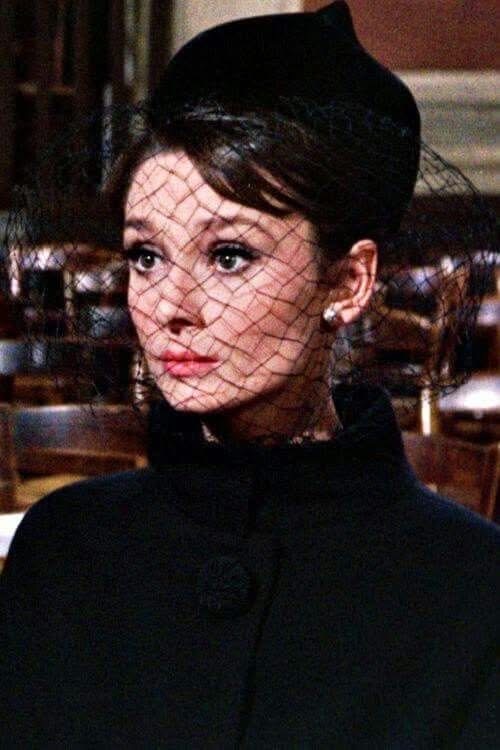
released in 1989, marked a poignant chapter in the life of one of Hollywood’s most beloved icons. Directed by Steven Spielberg, this film was a modern retelling of the 1943 classic «A Guy Named Joe.» Hepburn’s participation in this project not only showcased her enduring talent but also her unwavering commitment to philanthropy.
As a celebrated actress known for her timeless beauty and grace, Hepburn’s legacy transcended the screen, and her involvement in «Always» served as a fitting tribute to her illustrious career.
In «Always,» Hepburn played the role of Hap, a guardian angel guiding the protagonist, played by Richard Dreyfuss, in his journey of love and redemption. Her performance was both tender and heartwarming, encapsulating the essence of her career, which was filled with roles that highlighted compassion, elegance, and strength. Hepburn’s ability to convey deep emotion with subtlety was a hallmark of her acting style, and her portrayal in «Always» was no exception. The film showcased her enduring charm, even in her later years, reminding audiences of the impact she had on the film industry.
What sets «Always» apart from other films in Hepburn’s career is not just its nostalgic connection to classic cinema but also the significant philanthropic gesture she made during its production. Audrey Hepburn donated her entire $1 million salary from the film to UNICEF, an organization she passionately supported throughout her life. Her commitment to humanitarian causes was well-known, and this act of generosity exemplified her dedication to improving the lives of children around the world. Hepburn’s legacy as a humanitarian has become as iconic as her film career, establishing her as a role model for future generations.
The decision to remake «A Guy Named Joe» was a bold move for Spielberg, who sought to capture the essence of the original while infusing it with contemporary themes. Hepburn’s presence lent the film a sense of authenticity and nostalgia, attracting both older fans who remembered her earlier work and new audiences discovering her charm for the first time. The collaboration between Hepburn and Spielberg, two cinematic legends from different eras, resulted in a film that celebrated love, loss, and the enduring bonds that connect us beyond the grave.
The film also featured a strong supporting cast, including Richard Dreyfuss and Holly Hunter, who brought depth and emotion to the story. Dreyfuss’s character, a fire-fighting pilot, experiences love and loss as he learns to navigate the complexities of relationships with Hepburn’s angelic guidance. The blend of romance, fantasy, and drama resonated with audiences, reinforcing the timeless themes of love and sacrifice that permeate Hepburn’s filmography.
Audrey Hepburn’s career spanned several decades, and she became a symbol of elegance and style, inspiring countless actresses and fans around the world. Her roles in films like «Breakfast at Tiffany’s» and «Roman Holiday» solidified her status as an icon of Old Hollywood. With «Always,» Hepburn added a final note to her illustrious career, leaving audiences with a touching portrayal of love that transcends time and space. Her ability to evoke genuine emotion and convey the complexities of human relationships remained unmatched, ensuring her place in cinematic history.
In addition to her film career, Hepburn was a dedicated advocate for children’s rights and welfare. After her retirement from acting, she devoted much of her time to UNICEF, working tirelessly to raise awareness and funds for children in need. Her legacy as a humanitarian continued to grow, and her contributions to UNICEF have left an indelible mark on the organization. Hepburn’s passion for philanthropy and her desire to make a difference in the world set her apart from many other stars of her time, showcasing her commitment to using her fame for a greater good.
The impact of «Always» extended beyond its box office performance; it served as a fitting farewell to a beloved actress. Hepburn’s final performance resonated with audiences, and her philanthropic legacy continued to inspire future generations of actors and humanitarians alike. The film viewers of the power of love and the importance of compassion, themes that Hepburn embodied throughout her life.
As we reflect on Audrey Hepburn’s remarkable journey, her role in «Always» stands as a testament to her enduring legacy. The film not only showcased her talent but also highlighted her deep-seated belief in the importance of giving back. Hepburn’s life and career serve as an inspiration to many, and her contributions to both cinema and humanitarian efforts will continue to be celebrated for years to come.
In conclusion, «Always» represents more than just Audrey Hepburn’s final film; it symbolizes a lifetime of dedication to her craft and a commitment to making the world a better place. As we Hepburn, we honor her memory as an actress, humanitarian, and timeless icon of beauty and grace. Her legacy lives on through her films, her charitable work, and the countless lives she touched during her extraordinary life.
Audrey Hepburn’s final film, «Always,» released in 1989, marked a poignant chapter in the life of one of Hollywood’s most beloved icons. Directed by Steven Spielberg, this film was a modern retelling of the 1943 classic «A Guy Named Joe.» Hepburn’s participation in this project not only showcased her enduring talent but also her unwavering commitment to philanthropy. As a celebrated actress known for her timeless beauty and grace, Hepburn’s legacy transcended the screen, and her involvement in «Always» served as a fitting tribute to her illustrious career.
In «Always,» Hepburn played the role of Hap, a guardian angel guiding the protagonist, played by Richard Dreyfuss, in his journey of love and redemption. Her performance was both tender and heartwarming, encapsulating the essence of her career, which was filled with roles that highlighted compassion, elegance, and strength. Hepburn’s ability to convey deep emotion with subtlety was a hallmark of her acting style, and her portrayal in «Always» was no exception. The film showcased her enduring charm, even in her later years, reminding audiences of the impact she had on the film industry.
What sets «Always» apart from other films in Hepburn’s career is not just its nostalgic connection to classic cinema but also the significant philanthropic gesture she made during its production. Audrey Hepburn donated her entire $1 million salary from the film to UNICEF, an organization she passionately supported throughout her life. Her commitment to humanitarian causes was well-known, and this act of generosity exemplified her dedication to improving the lives of children around the world. Hepburn’s legacy as a humanitarian has become as iconic as her film career, establishing her as a role model for future generations.
The decision to remake «A Guy Named Joe» was a bold move for Spielberg, who sought to capture the essence of the original while infusing it with contemporary themes. Hepburn’s presence lent the film a sense of authenticity and nostalgia, attracting both older fans who remembered her earlier work and new audiences discovering her charm for the first time. The collaboration between Hepburn and Spielberg, two cinematic legends from different eras, resulted in a film that celebrated love, loss, and the enduring bonds that connect us beyond the grave.
The film also featured a strong supporting cast, including Richard Dreyfuss and Holly Hunter, who brought depth and emotion to the story. Dreyfuss’s character, a fire-fighting pilot, experiences love and loss as he learns to navigate the complexities of relationships with Hepburn’s angelic guidance. The blend of romance, fantasy, and drama resonated with audiences, reinforcing the timeless themes of love and sacrifice that permeate Hepburn’s filmography.
Audrey Hepburn’s career spanned several decades, and she became a symbol of elegance and style, inspiring countless actresses and fans around the world. Her roles in films like «Breakfast at Tiffany’s» and «Roman Holiday» solidified her status as an icon of Old Hollywood. With «Always,» Hepburn added a final note to her illustrious career, leaving audiences with a touching portrayal of love that transcends time and space. Her ability to evoke genuine emotion and convey the complexities of human relationships remained unmatched, ensuring her place in cinematic history.
In addition to her film career, Hepburn was a dedicated advocate for children’s rights and welfare. After her retirement from acting, she devoted much of her time to UNICEF, working tirelessly to raise awareness and funds for children in need. Her legacy as a humanitarian continued to grow, and her contributions to UNICEF have left an indelible mark on the organization. Hepburn’s passion for philanthropy and her desire to make a difference in the world set her apart from many other stars of her time, showcasing her commitment to using her fame for a greater good.
The impact of «Always» extended beyond its box office performance; it served as a fitting farewell to a beloved actress. Hepburn’s final performance resonated with audiences, and her philanthropic legacy continued to inspire future generations of actors and humanitarians alike. The film viewers of the power of love and the importance of compassion, themes that Hepburn embodied throughout her life.
As we reflect on Audrey Hepburn’s remarkable journey, her role in «Always» stands as a testament to her enduring legacy. The film not only showcased her talent but also highlighted her deep-seated belief in the importance of giving back. Hepburn’s life and career serve as an inspiration to many, and her contributions to both cinema and humanitarian efforts will continue to be celebrated for years to come.
In conclusion, «Always» represents more than just Audrey Hepburn’s final film; it symbolizes a lifetime of dedication to her craft and a commitment to making the world a better place. As we Hepburn, we honor her memory as an actress, humanitarian, and timeless icon of beauty and grace. Her legacy lives on through her films, her charitable work, and the countless lives she touched during her extraordinary life.
AudreyHepburn #Always #StevenSpielberg #ClassicFilm #Humanitarian #UNICEF #RichardDreyfuss #AGuyNamedJoe #OldHollywood #FilmLegacy
Report on Interview with Sean Hepburn Ferrer – October 2023
Karin Hiebaum de Bauer AUDREY HEPBURN
Today marks the anniversary of an incredible opportunity I had last year to interview Sean Hepburn Ferrer, the son of the Hollywood legend, Audrey Hepburn. The conversation provided profound insights into the life and legacy of his mother, who is celebrated not only for her remarkable film career but also for her humanitarian efforts.
During our discussion, Sean shared personal anecdotes and reflections on growing up as the son of two stars: Audrey Hepburn and Mel Ferrer. He spoke eloquently about his mother’s impact on both the film industry and the world at large, emphasizing her commitment to various humanitarian causes.



In a recent email correspondence two weeks ago, Sean mentioned an exciting development: a film is set to be made that chronicles the life story of his mother. This project promises to shed light on Audrey Hepburn’s multifaceted life, showcasing not only her iconic roles on screen but also her profound influence off-screen.
This upcoming film is anticipated to engage both longtime fans of Audrey Hepburn and a new generation, highlighting the enduring legacy of one of Hollywood’s greatest legends.
This report summarizes the key points from the interview and serves as a foundation for future discussions about Audrey Hepburn’s legacy and the forthcoming film.





